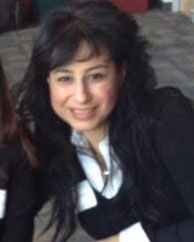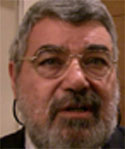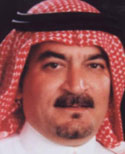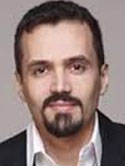By H A Hellyer
29 Dec 2015
When the Egyptian uprising broke out in 2011, the opponents of Hosni Mubarak consisted of many different groups and trends.
Within a few months, the "divorce" between the revolutionary camp and the Muslim Brotherhood-led faction began. At the heart of their separation, and the split between revolutionaries and the Mubarak regime, was how religion - specifically, Islam - was used in public life.
Five years later, the instrumentalisation of Islam for partisan gain is a shortcoming that blemishes both pro-Mohamed Morsi and pro-Abdel Fattah el-Sisi forces in Egypt today. It isn't a fault that only one side falls into on a regular basis - and consistency in criticising that flaw remains rather elusive.
A political tool
From early on, supporters of the Brotherhood and different Salafi groups utilised religion as a political tool - using it to encourage Egyptians to vote "yes", for example, in the first referendum in support of the military's road-map in 2011.
From 2011 onwards there was a flourishing of Islamist TV channels - many of which provided platforms for incitement against Coptic Christians, as well as other Muslims.
During Morsi's tenure as president, these channels prospered further - and Morsi himself attended a rally at which incitement against Shia Muslims was pronounced. A few days later, Shia Egyptians were lynched in Giza. Following the military's removal of Morsi, pro-Morsi partisans continued, and continue to use religion to agitate.
As the rise of Islamist parties ensued between post-2011, their adversaries, including those who opposed Mubarak and the military, called them out. Such opponents weren't necessarily French-style secularists, who were generally ambivalent about religion but decried the Brotherhood's tactics as evidence that they were "tuggar al-deen" (traders of religion).
Nevertheless, such partisan usage of religion is hardly a flaw unique to the Morsi camp. Indeed, the Morsi camp had access to parts of Egyptian state power for a limited amount of time, while their opponents have had, and have more access for a longer period of time.
Pro-state forces, particularly from 2013, have also pushed forward the instrumentalisation of religion, albeit differently.
Egypt is host to the Azhar University and al-Azhar Mosque, the most notable educational establishment in Sunni Islam. The Azharis claim to be rooted in normative Sunnism - something shared with the Tunisian mosque of the Kairouan, or the Moroccan Qarawiyyin, as well as the Nahdhat-ul-Ulama in Indonesia.
But for much of the 20th century, quality control deteriorated, leading the institution to mislay its connection to its past. In politics, the rarity of the institution to speak "truth to power" has lessened its impact, as Nathan Brown, a professor at the George Washington University, in Washington DC, and I recently critiqued in Foreign Affairs.
The attempt to use the Azhar in the "war of ideas" against the Islamic State of Iraq and the Levant (ISIL) is handicapped by the lack of credibility the institution has with the target audience, as I noted recently, as it is viewed as aligning itself along state powers.
Losing credibility
In the weeks following the deposing of Morsi, the security forces used excessive force, the most serious example of which was the forced dispersion of the pro-Morsi sit-ins in August 2013.
Around 1,000 people were killed in what was described by rights groups as "probably a crime against humanity". While the military's supporters in Egypt probably considerably outnumbered the Brotherhood's, it would have given the Azhari establishment a certain standing and ability to mediate between opposing factions if it had sought a more neutral stance.
The response of the official Azhari religious establishment, however, had been to fully endorse the military's deposing of Morsi, without continuing to call the authorities to account for abuses carried out thereafter.
Latter descriptions of the then defence minister as similar to a Prophet provoked censure even from other pro-state Azhari scholars. In the West, the Egyptian president is sometimes portrayed as a reformer of Islam, though it is unclear how he is going to fulfil that role with a rights record that is so harshly criticised by rights groups in and out of Egypt.
Other opponents of the Brotherhood camp continue to also utilise religion to bolster their political stances, including in the administration of religious affairs, as the Brotherhood attempted.
Preachers used their positions to support anti-Islamist candidates for the presidency in 2012 - as others did to support pro-Islamist candidates. Both pro- and anti-Islamist figures have invoked dreams as evidence of divine inspiration - as though God is on their "side" rather than on anyone else's.
Ironically, critics of this parochial use of religion more often voice criticism of one camp, or the other. Seldom are objections of the phenomenon itself made - that while religion can inspire people to do wonderful things, it ought not to be used for partisan, venal political gain, irrespective of the culprit.
But, this is Egypt. All too often, a binary myopia infests the discussion - where one must advocate for one side, at the risk of being accused of backing the other side if support is not exhibited strong enough.
The choice of maintaining the right - even the duty - to criticise any and all Egyptians for the abuses they carry out, regardless of partisanship, is rare indeed - and often carries its own perils.
Yet, non-partisanship in scholarly criticism remains a goal worth striving for. One Egyptian religious authority, Sheikh Emad Effat, who was called "sheikh of the revolution" in the aftermath of his death at the hands of state forces in 2011, and who was critical of both Islamist parties and the then military authorities, expressed this sentiment best when he wrote:
"Sheikhs of Al-Azhar used to leave their resignations in the drawers of their secretaries and told them: if you see us submitting to pressure then hand over the resignation to the press. When they are honest to God, He makes them victorious and cherishes them."
Consistency is a rare trait when it comes to analysing the Egyptian context - but scholars, whether religious authorities or not, would fulfil a great role if they would exhibit that kind of evenness.
Principles can only be called as such when they are upheld irrespective of who they assist - otherwise, they're just slogans.
H A Hellyer is a senior nonresident fellow at the Rafik Hariri Center for the Middle East at the Atlantic Council in Washington DC, and associate fellow in International Security Studies at the Royal United Services Institute in London.
Source: Al-Jazeera












